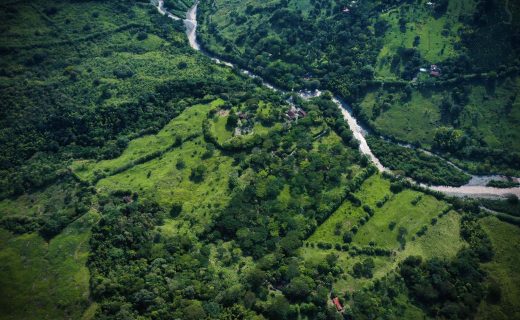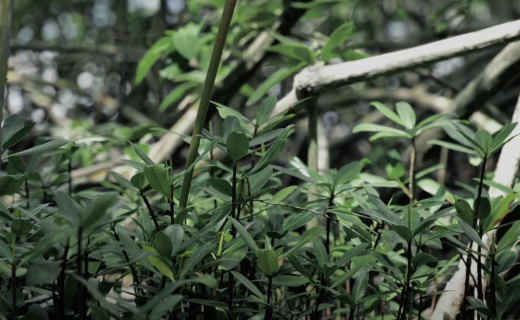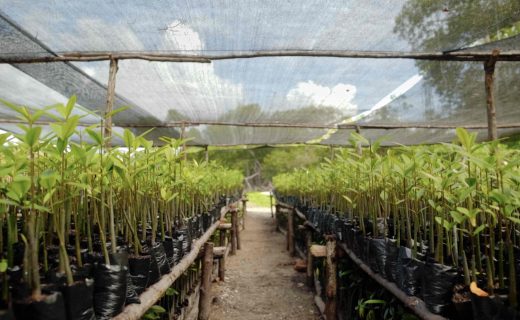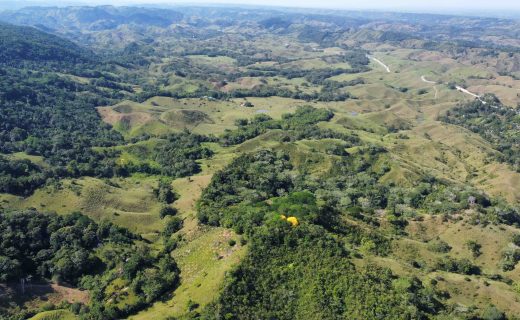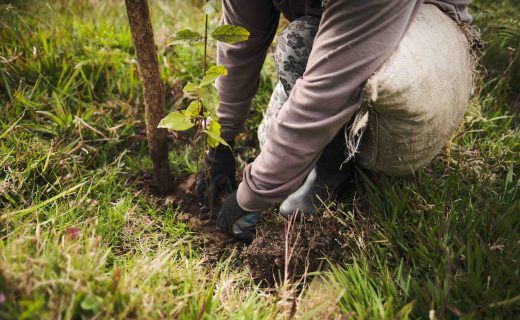Sustainability | SEPTEMBER 24th, 2019
- ’Conservamos la Vida’, an initiative that seeks to preserve the Andean bear, was among the five finalists of the P3 Impact Award, which is made by the Concordia organization, supported by the University of Virginia and the United States Office for Global Alliances.
- The work for the preservation of this species is led by Fundación Grupo Argos (with the support of Cementos Argos and Celsia), WCS-Colombia, the Corporación Autónoma Regional del Valle del Cauca (CVC) and Natural National Parks.
‘Conservamos la Vida’, a Colombian project that seeks to protect the Andean bear in the Valle del Cauca, Cauca, Risaralda and Chocó, was recognized as one of the best public-private initiatives in the world in the P3 Impact 2019 award. This award with Global reach highlights alliances that are committed to a common purpose between governments and companies.
The P3 Impact, which is convened by the independent organization Concordia, supported by the Darden School of Business at the University of Virginia and the United States Office for Global Alliances, was delivered today in New York during its Annual World Summit. In the awards ceremony, the effectiveness of ‘Conservamos la Vida’ to protect the Andean bear and its ability to ensure that rural families in the region between the Tatamá Parks, Farallones de Cali and Munchique, are today actively involved in the conservation of natural resources and improving their quality of life.
“The fact that We Conserve Life has been placed among the five world finalists of the P3 Impact, shows that when we have the ability to unite visions and efforts, it is possible to achieve great achievements for the benefit of the environment and communities. This recognition becomes a very relevant reason to seek more alliances and cooperation in favor of environmental conservation at the country level”, María Camila Villegas, Director of Conservation of Fundación Grupo Argos.
About the Conservamos la Vida program – Kilometers of connectivity
‘Conservamos la Vida’ takes place in areas where peasant families live very close to the Andean bear forests. Due to deforestation and the loss of their habitat, the Andean bear usually remains without shelter and enters the farms, affecting these populations. As a defense mechanism and because of ignorance, people have tried to capture and hunt it.
‘Conservamos la Vida’ born in response to that context with the objective of sensitizing, promoting and generating voluntary agreements with the inhabitants of these areas to preserve the habitat and the species. As a result, farmers have released areas of their land and have dedicated them exclusively to conservation, which has enabled the implementation of active restoration processes by planting trees and converting the land into biological corridors that give the Andean bear more space to move and reproduce, without having contact with humans or with domestic animals.
For their part, farmers receive agricultural supplies, materials for planting and forage banks for livestock; Additionally, the Fundación Grupo Argos supports them in the construction of septic tanks, milking areas or stables, to improve the handling of animals and prevent them from moving towards the areas that the bear travels.
To date, 58 agreements have been reached with peasant families, a figure that has allowed 1,567 hectares of conservation to be reached, all within a prioritized area of 10,000 square kilometers. This work is complemented by a monitoring stage to identify how those areas that were destined by farmers for preservation, have contributed to the conservation of the species.
“We have been able to teach people how the behavior of the Andean bear is and that it is no longer seen as a threat, but as an opportunity for progress. We do this with environmental education conferences to explain that if the bear’s habitat is deforested, it is also possible that he arrives on his land to look for some food or to do his natural routes, ”concluded María Camila Villegas.
At the moment, the initiative has been carried out in the municipalities of El Águila and Dagua (Valle del Cauca), as well as in El Tambo (Cauca); Similar projects are being carried out in Palmira and Buga, just in sectors that are located on areas of the moor and in areas of influence of the Munchique and Farallones de Cali National Natural Parks.
